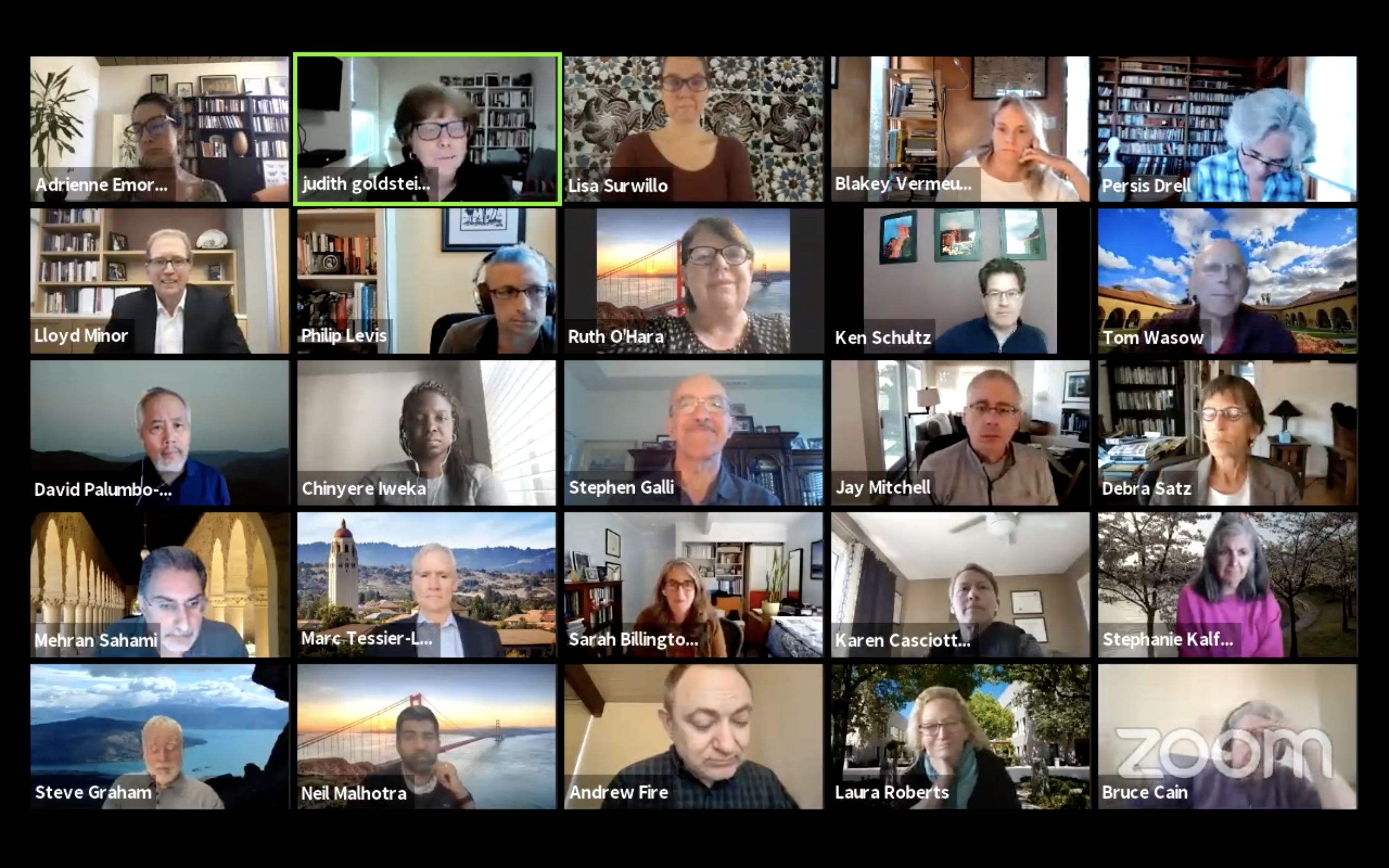The Faculty Senate unanimously voted on Thursday in favor of renaming the Medical Center Line, a track for faculty who engage in clinical care and research, to “University Medical Line” — a change administrators say would help recruit and retain world-class medical faculty members and clarify that medical line faculty are employed by Stanford University and not its medical centers.
The Senate’s assent to the name change sends the issue to the entire Academic Council, which must approve the measure by a majority vote for it to be considered by the Board of Trustees.
Dean of the School of Medicine Lloyd Minor said that the Medical Center Line (MCL) title leaves a “misimpression” that these faculty members are employed by Stanford hospitals, not the University. Minor added that the title indirectly contributed to a sense of distance between MCL and University faculty.
The role of MCL faculty is defined by participation in clinical care and research, according to the School of Medicine Faculty Handbook, and they are appointed through competitive national searches. Stanford Medicine has 575 MCL faculty members, in contrast to 400 University Tenure Line and 79 Non-Tenure Line faculty members.
While the name change proposal would not make any changes to the “rights and responsibilities” of MCL faculty, it does request that the official titles of these faculty members be modified to include “University Medical Line,” rather than the specific hospital, and the faculty member’s affiliated department.
Psychiatry and behavioral sciences professor Laura Roberts spoke in favor of the proposal, noting that while recruiting faculty to Stanford, she has had to explain the “archaic language” of MCL. The title, she added, represents a “threat” to the University’s ability to recruit faculty who may have tenured positions at other institutions.
COVID-19 planning
Provost Persis Drell gave senators a cursory overview of Stanford’s “remarkably complex” planning to return to an in-person academic experience in the fall. As part of the planning, the University will expand access to academic office space for faculty and graduate students starting April 12 and subject to the approval of local units.
“Of course the trajectory of the pandemic and the public health rules in effect at the time will determine what we can do in the fall, but I believe we have really good reasons to be optimistic in our planning,” Drell said.
Since students have returned from spring break, the University has recorded a set of nine positive cases among off-campus students in the Graduate School of Business, according to Drell. In addition, one student living on campus has tested positive with a number of direct exposures who are in quarantine.
While the University offered undergraduate students living on campus in the spring pre-arrival testing, only 100 students participated. A single positive test was identified, and the student’s travel was delayed so they could quarantine.
Campus discourse
A group of faculty members analyzing campus discourse told the Faculty Senate on Thursday that student anxiety was “amplified exponentially” following the 2016 presidential election and the pandemic, intensifying groupthink among students.
The Planning and Policy Board Subcommittee on Campus Climate has been interviewing students, staff and resident fellows on the state of campus discourse. Comparative literature professor David Palumbo Liu, a member of the subcommittee, said that although the group’s findings are preliminary, the common thread among students has been a feeling of isolation.
The feeling stems from some students’ belief that administrators and faculty lack understanding of the “wide diversities of student lives,” which has resulted in students becoming increasingly dependent on small groups, according to Palumbo-Liu.
“We’ve got this immense narrowing of intellectual and social life, and the most depressing finding that we came upon was that students are afraid of making mistakes, which I think is the death of an educational process,” he said.
Law professor Richard Ford explained how the lack of open dialogue and mutual respect on campus has resulted in conflicts that have exacerbated issues facing students. A resident fellow of Kimball Hall, Ford pointed to the dynamic of posting controversial flyers in dorms, which he said often results in anger and hostility among students.
While Ford acknowledged that the University has certain legal obligations, he said that he hoped the subcommittee will continue conversations with students to “begin to articulate a set of values — an ethos — that doesn’t default to the law.”
Lisa Surwillo, an associate professor of Iberian and Latin American cultures, asked how the subcommittee will treat social media and whether it was being considered as an extension of campus life. Ford answered that the fast-paced nature of social media results in discourse around a topic getting “revved up.”
“Our challenge is to try to ensure that the ethos of Twitter does not become the ethos of the university, but in the absence of some real counterweight, it does,” Ford said.
Palumbo-Liu told senators that the subcommittee will continue to solicit student experiences and submit a report to the Senate later this year.
